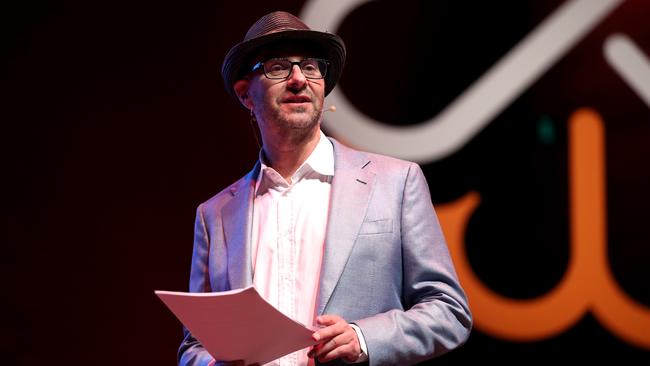Alex Waislitz plays the infrastructure boom
There’s one sector where billionaire Alex Waislitz is finding plenty of winners.

Alex Waislitz, the owner of the private Thorney investment group, has picked — several winners in stocks that have exposure to big oil and gas and infrastructure projects, and says he will keep investing in the industry.
About 18 months ago Waislitz identified mining services and similar industries as the next big thing for his listed investment company Thorney Opportunities at its annual general meeting.
At the time, there was much talk about the strong early performance of his other LIC, the technology focused Thorney Technologies.
Alex Waislitz
- Lives: Melbourne
- Net worth: $1.46 billion
- Source: Investment firm Thorney
- Secrets of success: Activist investing is small caps; recent focus on infrastructure services stocks
While technology is now providing Waislitz with some intriguing pre-IPO opportunities, he says the infrastructure boom is set to continue delivering for him in the foreseeable future.
Stocks like oil and gas explorer Cooper Energy, which is up 21 per cent since January, and Service Stream, which has doubled in value in 12 months and is up 60 per cent in 2019, have been strong performers for Waislitz.
He recently told Thorney Opportunities investors that Service Stream had increased 13 times in value since Thorney first bought shares in the company that designs, builds and installs support services to the communications and utilities sectors, and has sold down some stock over time to take some profits off the table.
But Waislitz is still a big Service Stream fan. “We believe that with the company’s strong management team and its exposure to the infrastructure boom Service Stream can keep delivering for the foreseeable future,” he told his LIC investors.
The Waislitz portfolio is also buoyed by big projects such as the controversial Adani coal mine in Queensland and he noted the top 10 non-mining related civic infrastructure projects currently underway in Australia alone account for more than $100 billion in spending on road, rail, airport and communication projects.
“Many billions of dollars more worth of additional new infrastructure projects were flagged in recent state government budget announcements,” he said.
“All this points to significant ongoing revenue streams for both large and small companies exposed directly and indirectly to the infrastructure sector.”
Other good performing stocks for Waislitz on this front have been MMA Offshore, which provides services to the oil and gas sector and has risen 16 per cent this year, and Decmil, which in the past few months has been awarded about $250 million worth of work on new road upgrades and wind farm projects. Decmil shares are up about 30 per cent since January 1.
Waislitz has a fortune of $1.46bn on this year’s edition of The List — Australia’s Richest 250, published by The Australian, having built the private Thorney group up into one of the country’s leading small cap investors over 26 years in business.
Thorney, either through private interests or through the two LICS, has often taken activist roles in companies it has invested in, agitating for board, management and strategic changes over times.
It has been a long-term holder in stocks such as stem cell research company Mesoblast, headed by Waislitz’s friend Silviu Itescu, though Waislitz has not been afraid to be critical at times. Mesoblast shares are up 28 per cent since January 1.
Another good performer has been online travel booking company Webjet, which has risen 22 per cent this year, while Waislitz has recently bought back into digital logistics company Yojee, which is up 30 per cent.
He also has property holdings in Australia and the US. Waislitz, who has an apartment in New York’s upper west side, has plans to hold 50 per cent of his assets there within about five years.
Part of that strategy has been an increasing focus on both commercial property investments but also unlisted companies that are either raising capital from venture capital investors or heading for future stockmarket listings.
One is Updater, which provides services to people in the US moving house.
It delisted from the ASX last year in the hope of achieving the $US1bn ($1.42bn) valuation “unicorn” status via private raisings from US investors.
Waislitz’s Thorney Technologies holds shares in the private Updater group and he says its management remains hopeful of achieving a new raising, and valuation, in the near future.
One private holding that has rapidly increased in value for Waislitz has been e-cigarette company NJOY. Thorney Technologies bought shares in the private company late last year when it was valued at $US800m. It has since raised capital for a $US1.2bn valuation and then more recently another at $US2bn.
Thorney Technologies has also participated in a $75m pre-IPO capital raise for Geelong high-tech car wheel manufacturing company Carbon Revolution, and Waislitz also has high hopes for mobile payment app Credit Clear, which he says is headed for an ASX listing early next year.




To join the conversation, please log in. Don't have an account? Register
Join the conversation, you are commenting as Logout